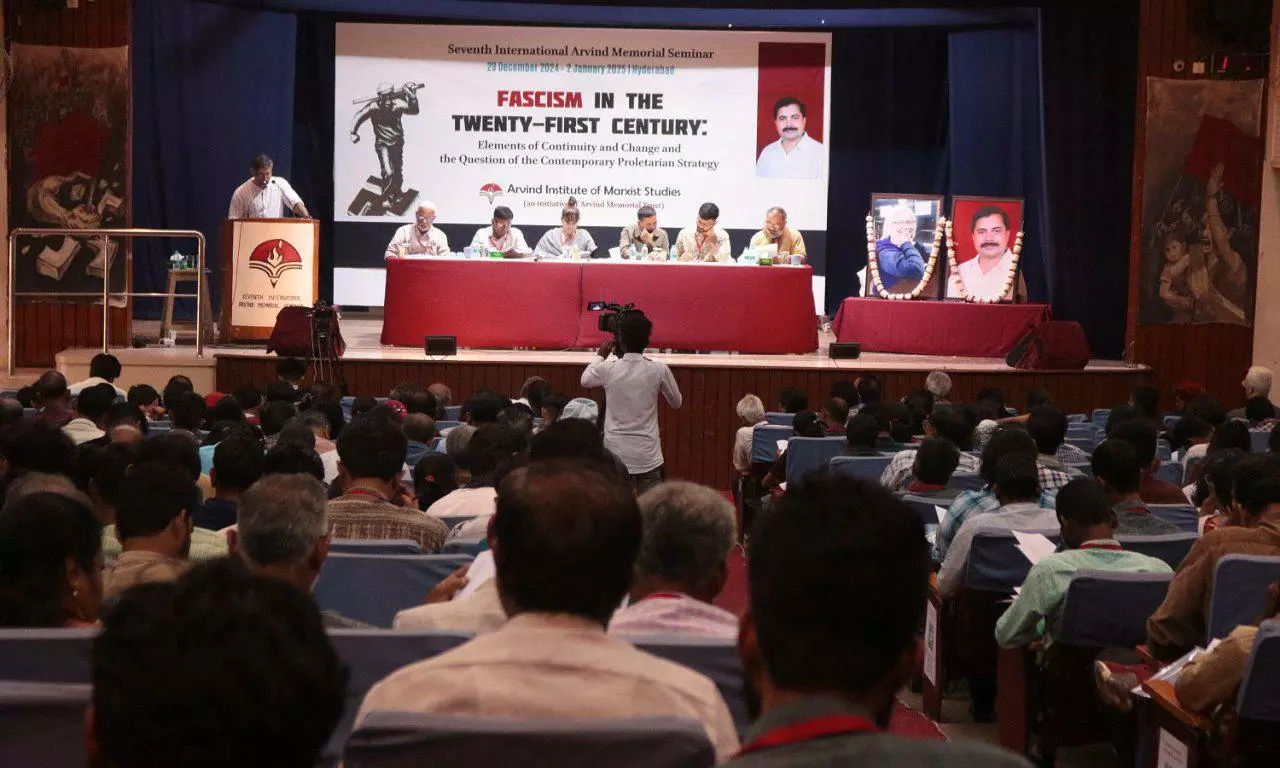Marxist Seminar Explores Similarities Between Old and New Fascism

Hyderabad: Is there a difference between the fascism experienced in the 21st century and the one witnessed by Germany and Italy in the previous century? This and many other aspects of fascism were explored in a seminar organised by the Arvind Memorial Trust here on Sunday.
The inaugural event of the seventh ‘International Arvind Memorial Seminar' saw participation of hundreds of activists and academics from across the country. The five-day-long seminar, ‘Fascism in the Twenty-First Century: Elements of Continuity and Change and the Question of the Contemporary Proletarian Strategy' aims to understand the various aspects of fascism and what could be an effective strategy against it.
The seminar was organised by Arvind Institute of Marxist Studies — an initiative of Arvind Memorial Trust in memory of Arvind Singh, a prominent Left-leaning intellectual and political activist. The trust organises a national seminar every year at different locations on some important aspects of social change, and the city hosted the event for the first time.
The first day's event was presided by R. Raghu, Dr Nikhil Ekade, Prem Prakash, Shivani Kaul, and K.G. Ramachandra Rao.
The inaugural event saw participants from different parts of the country including Telangana, Andhra Pradesh, Karnataka, Tamil Nadu, Kerala, Maharashtra, Uttar Pradesh, Bihar, Delhi, Punjab, Haryana and from the United States, Australia and Nepal. The attendees partook in a detailed discussion on the question of fascism.
The key paper of the seminar, 'Fascism in the Twenty-first Century: Elements of Continuity and Change' was presented by Abhinav Sinha, who is a Marxist theorist and editor of a workers’ newspaper ‘Mazdoor Bigul’.
The paper examined the essential characteristics of fascism throughout history and analysed the various aspects that distinguish fascism in the 21st century from that of the 20th century witnessed by Italy and Germany.
Abhinav criticised the common tendency to term all reactionary forces as fascist and to expect all features of fascism to repeat themselves in an identical manner. He also mentioned that the Modi-Shah regime in India is undoubtedly an example of a fascist regime.
The presentation was followed by an in-depth discussion which was enriched by several questions and additions from the participants. The session also witnessed intense debates among different aspects of fascism.
Senior Supreme Court lawyer Colin Gonsalves will speak on the 'Rise of Fascism and the Question of Law and Judiciary' on Monday.
Many prominent activists, intellectuals, writers and professors from various states are expected to attend the seminar. About a dozen other papers by prominent writers such as Shivani Kaul, P.J. James, Nicolai Messerschmidt, Jiselle Hannah from Australia Asia Worker Links (AAWL) and others, analysing the phenomenon of fascism and the strategy of resistance will be presented in the next four days.

